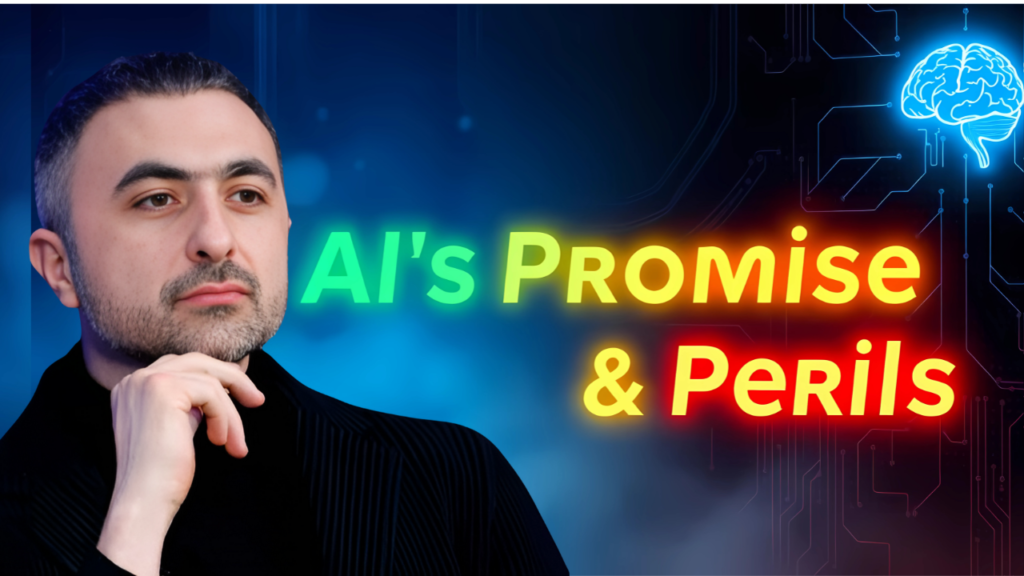Artificial Intelligence (AI) is revolutionizing industries, promising groundbreaking efficiency and innovation while raising ethical and regulatory concerns. In a recent podcast, Mustafa Suleyman, a key figure in AI development, shared his insights into AI’s transformative potential and its associated risks. This article highlights the major themes he discussed, offering a balanced perspective on how AI is reshaping work, society, and the global economy.

AI’s Transformative Potential
Revolutionizing Work
Suleyman envisions AI as a “co-pilot,” fundamentally changing how tasks are approached. By handling routine tasks, AI empowers professionals to concentrate on creativity and innovation. He even foresees AI co-founding startups, reducing operational hurdles, and accelerating entrepreneurship.
Ease of Access
Advancements in natural language processing (NLP) and computer vision are making AI more intuitive and accessible. By breaking down technological barriers, AI democratizes access to information and tools, benefiting diverse populations.
Productivity Surge
AI is poised to drive unprecedented productivity by optimizing workflows, automating repetitive tasks, and enhancing decision-making. Suleyman predicts these efficiencies will transform both professional and personal spheres, altering how individuals and organizations operate.
Challenges and Risks
The Containment Problem
Unregulated AI development poses significant risks. Suleyman warns that autonomous AI agents, if left unchecked, could lead to unintended consequences, disrupting societal norms and stability. Managing AI’s pace of development is crucial to avoiding such disruptions.
Surveillance and Bias
AI’s power can be misused for surveillance, threatening individual privacy. Additionally, biases within AI algorithms can reinforce existing systemic inequalities or introduce new forms of discrimination. Addressing these biases is essential for fairness and inclusivity.
Guardrails and Regulation
Suleyman stresses the need for strong regulatory frameworks to align AI development with ethical principles and human values. Without these safeguards, the potential for misuse or harm increases significantly.
A Philosophical Perspective on AI
Suleyman takes a dual approach to AI, emphasizing both its potential and its pitfalls:
- Optimism: AI can enhance lives, foster inclusivity, and drive innovation and efficiency.
- Caution: Risks such as destabilization, ethical dilemmas, and unchecked progress highlight the need for careful management.
This balanced perspective underscores the importance of thoughtful, collaborative AI development.
Future Outlook: Collaboration for a Better Tomorrow
AI’s influence on politics, economics, and societal norms is inevitable, redefining the human experience in a digital-first era. Suleyman sees AI as a partner in decision-making, offering unparalleled support in professional and personal contexts. However, he emphasizes the need for collaboration among governments, businesses, and individuals to:
- Maximize AI’s benefits.
- Mitigate potential harms through regulations and ethical guidelines.
The journey ahead requires a collective commitment to ensuring AI is harnessed as a force for good.
Conclusion
Mustafa Suleyman’s insights reveal both the transformative power and potential perils of AI. As this technology continues to evolve, it will shape the future of work, societal structures, and global norms. A collaborative, regulated, and ethical approach is essential to leveraging AI’s immense promise while addressing its risks.
The future of AI demands caution, optimism, and global cooperation to ensure it benefits humanity without compromising ethical and societal values.
